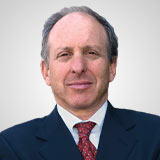Most investors wait until far too late in a bull market to jump into vehicles almost ready to drop, but Daniel Wiener shares one strategy that works most of the time.
One of the issues that investors always seem to have is that they are late to the game. They are late to the party and always kind of chasing the hot market. So how do you get around that? My guest today is Daniel Wiener to give us some tips on how to do that.
So Daniel, investors always seem to be either chasing the hot fund that was hot last year and then turns out not to be this year. How are we going to get past that and just have a slow and steady increase?
Well, you know, the first thing is you can't invest by looking in the rearview mirror. Unfortunately, that's what a lot of folks are doing. Also, recency is a big issue with investors. Whatever has happened most recently is the thing that drives the way they think about investing, about their portfolio, what have you.
So you end up in a situation where because we've had a big market correction and bonds have done very well...You know, we've been in a 30-plus-year bond bull market. Folks look at bond returns and say, "That's where I want to be," so they start pumping their money into bond funds at just the time when they really ought to be looking the other way and saying, "If stocks are down this much..."
Investing seems to be the only place where we like to sell things that are on sale, and we like to buy things when they're priced at a premium. It happens all the time. Currently, people are throwing their money into bond funds left, right, and center. The only equity funds that are seeing any inflows at all are emerging-market stock funds. Otherwise, there have been net outflows of cash from stock funds across the industry.
It's a big mistake, and it's been happening ever since the market bottomed in 2009. I guess if you're a contrarian, you would say, "This is great for stock market investors," because as long as people keep buying bonds, we know they're making an error, and we're doing the right thing.
Eventually the sentiment will shift, and actually it'll be good for the market, because a lot of that cash will begin to move back into stocks, where there are tremendous values. I mean, I don't see value in a US ten-year treasury that currently is yielding less than 1.8%. 1.8% over ten years is not going to fund your retirement. It just isn't.
Some people would say, "To get around this, I'm going to start following the smart money, the institutions, see where those are flowing because those are the guys that tend to get it right more often." What are your thoughts on that?
Well, I'm not sure that the institutional money gets it right more often. I think you like to look at the smartest of the institutional managers, many of whom run mutual funds, so we invest with those managers through the mutual fund.
There's one sort of hot money or hot hand strategy that I've written about many times in my newsletter. I call it the Hot Hand strategy. At Vanguard, where the mutual funds have very strict and very defined objectives-and the managers are really held to those objectives-what I've learned historically is if you look at the 12-month period through the end of the year, look at the best diversified fund for that year, and buy it for the ensuing year, you actually come out way ahead of the market over time.
It doesn't work every year, but it has worked very well over long periods of time. It's a strategy you don't want to put all your money into, but it's also a strategy you have to be committed to. Because if you do it in one year and it doesn't do well, you have to stay committed to it.
Related Reading:
4 Lessons from Top Fund Managers










